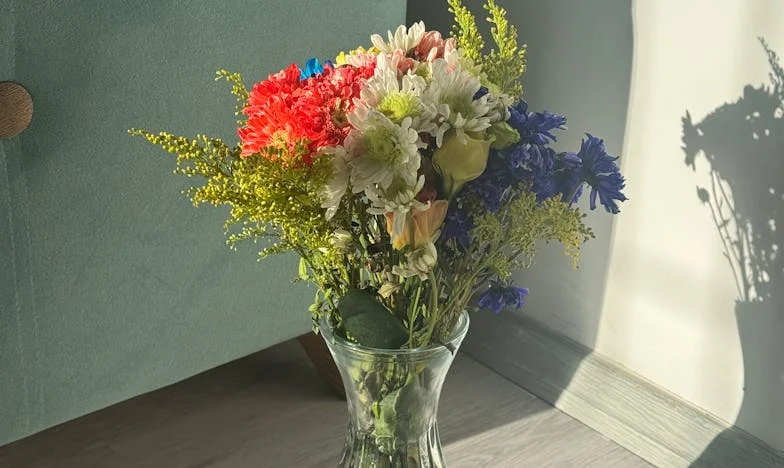Autumn Forgiveness: The Cost of Holding On
“Why are you doing this, Christine? Let Dr. Peterson handle it!” The tremor in Ashley’s voice barely cut through the chaos of the ER, but I heard her. My hands were already gloved, sweat stinging the corners of my eyes. Monitors beeped, a chorus of urgency.
“Get OR two ready. I want a transfusion kit prepped. And page Jack—he’ll assist,” I barked, not caring if my tone sounded sharp. There was no room for hesitation—not with Emily’s life hanging in the balance.
But as I caught my own reflection in the glass—sharp, tired, streaked with gray—I had to wonder: Was I saving my patient, or was I trying to save myself?
Ashley rushed out, and for a moment, the world spun. Emily’s chart stared up at me: 22 years old, car accident, massive internal bleeding. She was my daughter’s age—the daughter I hadn’t seen in five years, not since the day I told her to choose between college and her boyfriend. She chose neither; she chose to leave.
I shook my head, forcing myself to focus. The past was a scab I kept picking, and tonight it was bleeding all over my judgment.
Jack burst into the prep room, breathless. “You really want to take this one, Christine? You’re exhausted.”
I glared at him, feeling the anger bubble up. “She needs the best surgeon this hospital has. That’s me.”
He didn’t argue, just started scrubbing in. That’s what I loved about Jack—he knew when to push and when to stand back. The rest of the team, though, could barely hide their doubts. I caught snippets under their breath: “She’s too close to burnout,” “She’s pushing herself again.”
I was. And I knew it. But what choice did I have? This job—this relentless pursuit of perfection—it was all that defined me, especially after my family fractured beyond repair.
As we rolled Emily into the OR, her mother clung to my arm, mascara smeared by tears. “Please, Dr. Janowski, save my baby. I can’t lose her.”
I wanted to tell her I understood. I wanted to say I knew exactly what it felt like to watch your child slip away, to wonder if you were the reason they left. But I just squeezed her hand and nodded, then slipped through swinging doors into the sterile cocoon of the operating room.
Inside, the world narrowed to a heartbeat, a scalpel, and a river of blood. I cut, clamped, and stitched, adrenaline and muscle memory guiding my hands even as my mind wandered—back to the last fight with my own daughter, Sarah. I had called her selfish, irresponsible, ungrateful. She had called me cold, controlling, impossible to please. The words had landed between us like broken glass. We had both bled, but neither of us would clean up the mess.
“Pressure’s dropping!” Jack’s voice yanked me back. Emily’s numbers plummeted. I barked for more blood, my hands moving faster. Sweat rolled down my spine.
“Come on, Emily, stay with me!”
The room spun, memories flashing—Sarah at age five, beaming at her first piano recital; Sarah at eighteen, slamming the door as she left for good. All the moments I chose work over her, believing I was doing it for our future.
“Christine, she’s crashing!”
I glued my focus to Emily’s torn artery. My hands barely shook—I was still in control, even if my life wasn’t. I repaired the damage, clamped the vessel, and willed her heart to steady.
“Got it!”
Relief flooded the room. The team exhaled. I stepped back, peeling off my gloves, my arms trembling. Emily would live. I should have felt triumphant. Instead, the emptiness pressed in. Another child saved, but not my own.
I left the OR and found Emily’s mother pacing. As soon as she saw my face, she collapsed into my arms, sobbing. I held her, feeling her gratitude and grief, and something inside me cracked.
I wandered outside, into the bite of autumn air. The parking lot was nearly empty, just a few scattered leaves twirling beneath the streetlights. I dialed Sarah’s number, not expecting her to answer. But this time, after the third ring, she did.
“Mom?”
Her voice was wary, older than I remembered. My own words caught in my throat.
“Sarah… I—I just wanted to hear your voice. I just finished saving a girl about your age. Her mom was here, begging me to save her. And all I could think about was you.”
There was a long silence, filled with the echoes of all the things we hadn’t said.
“Are you okay?” she finally asked.
“No,” I whispered. “I’m tired, and I miss you. I was so wrong to push you away. I thought I was doing the right thing, but… maybe I wasn’t.”
She didn’t say anything, but I heard her breathing—hesitant, fragile.
“I’m sorry, Sarah. Can we talk? Really talk?”
Another long pause. Then, softly: “I’d like that.”
I hung up, tears stinging my eyes. The night felt different—bruised, but hopeful. I had spent so long trying to save everyone else, I’d forgotten that some wounds needed more than stitches—they needed forgiveness.
Now I’m sitting here, staring at my reflection in the car window, wondering: How many years do we lose to pride and fear? And is it ever too late to ask for forgiveness—or to give it?
